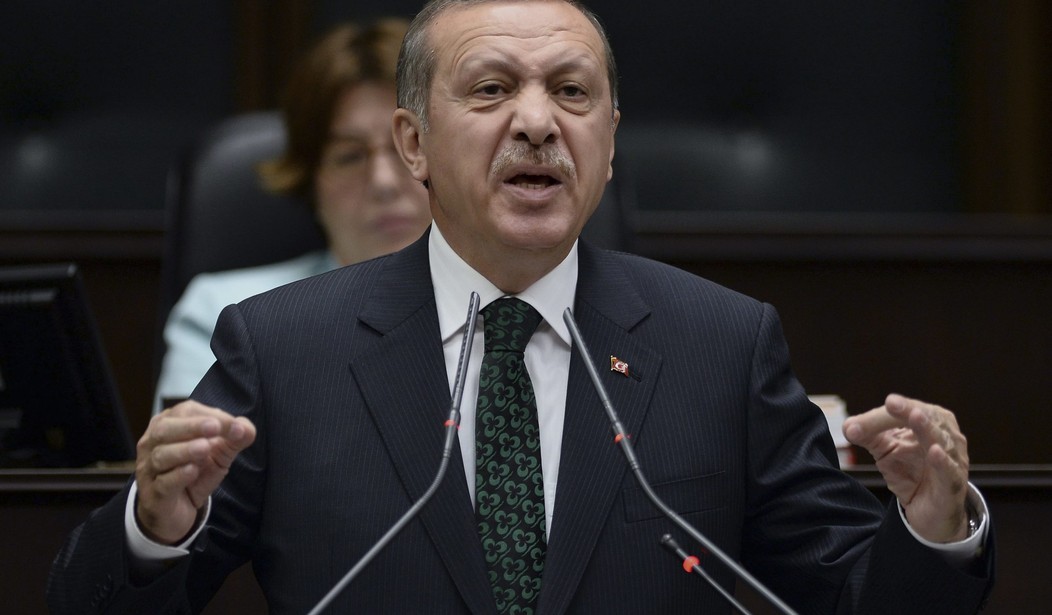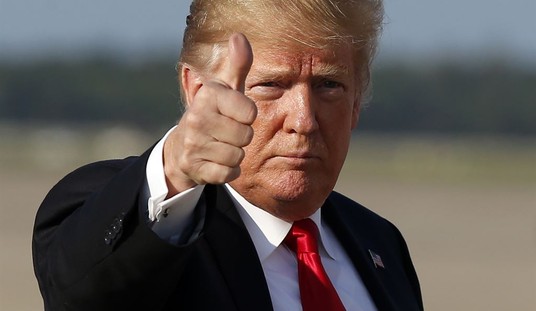Turkish forces bombed several Kurdish towns along the border with Syria, sending tens of thousands of civilians fleeing the fighting. Meanwhile, the fight against ISIS has virtually halted as Kurdish forces that had been engaged against the terrorists were pulled off the line and sent to the Turkish front. Dangerous terrorist prisoners have been removed from their camps in Syria because the Kurds who were guarding them have left for the front.
Is this all Donald Trump’s fault? Trump is being accused of “enabling” the Turkish incursion by refusing to act when President Erdogan told him about the planned operation in a phone call on Sunday. Trump warned Erdogan against the action and then moved 50-100 U.S. troops off the front line, allowing Turkey free access to the border.
But once again, it appears that America has abandoned the Kurds. Trump confirmed that by saying that while he likes the Kurds, they’ve never been allied with the U.S.
President Trump said Wednesday that it would be “easy” for the United States to form new alliances if Syrian Kurds leave the fight against the Islamic State to fend off a Turkish attack, noting that “they didn’t help us in the Second World War, they didn’t help us in Normandy” and were only interested in fighting for “their land.”
“With all of that being said, we like the Kurds,” he said in response to questions about Turkey’s incursion into Syria.
Trump’s off-the-cuff remarks, following a White House ceremony where he signed unrelated executive orders, came as the administration continued an effort to correct what it has called the misimpression that Trump enabled the offensive against the U.S.-allied Kurds that Turkey launched Wednesday. The president spoke with his Turkish counterpart, Recep Tayyip Erdogan, on Sunday.
When it comes to the Kurds, the U.S. has always been of two minds — at least. On the one hand, their national aspirations have garnered much sympathy, while the oppression of Iraq, Syria, Iran, and Turkey have angered us.
But the Kurds’ aspirations for a homeland, if realized, would blow up the Middle East. Several states would be asked to give up huge swaths of their territory. The Kurds aren’t helping by fighting an asymmetrical conflict with them, including using terrorist tactics.
The Kurdish democratic traditions frighten the governments in the region, as does their generally pro-Western tilt. In short, Kurdish independence is in literally no one’s best interests except the Kurds.
Trump is right: this isn’t our fight. And U.S. political leaders who continuously raise the hopes of the Kurdish people for U.S. support, only to withdraw or refuse to supply it when needed, should share the blame in this debacle. Trump isn’t the first president accused of betraying the Kurds. And he won’t be the last.
Our real concern should be how the Kurds withdrawing from the fight against ISIS might assist the terrorists in rebuilding their forces.
More broadly, current and former officials say, a large Turkish military incursion into northern Syria will have the effect of removing the single greatest source of counterterrorism pressure against ISIS — a Kurdish force that has been crucial to defeating and containing the terror group.
Asked about the risks, U.S. intelligence officials chose their words carefully Wednesday, not wanting to say anything publicly that appears to criticize Trump’s policies. But they did not dispute what one of the top counterterrorism officials in the government told NBC News last month — that ISIS remains a dangerous threat, and that reduction of counterterrorism pressure on the group would “set the conditions for potential reemergence in a very powerful way.”
“They are absolutely still a viable external operational threat globally,” the official, who chose not to be identified, said.
There are have never been any good answers when it comes to Syria and the Kurds. Strictly speaking, it’s not in the national interest to get involved. But if U.S. policy is more than just interests, and there is a moral dimension to our place in the world, then giving Erdogan a green light to invade was wrong. It may not be in our interest, but it certainly aids President Assad in Syria, Vladimir Putin in Russia, and the Iranians — all of whom are also fighting the Kurds.
Trump now owns the result of Erdogan’s war in Syria.










Join the conversation as a VIP Member